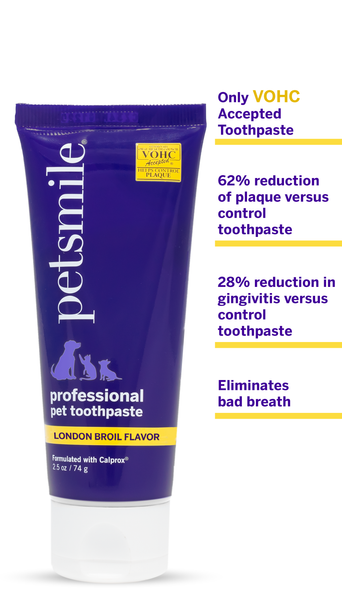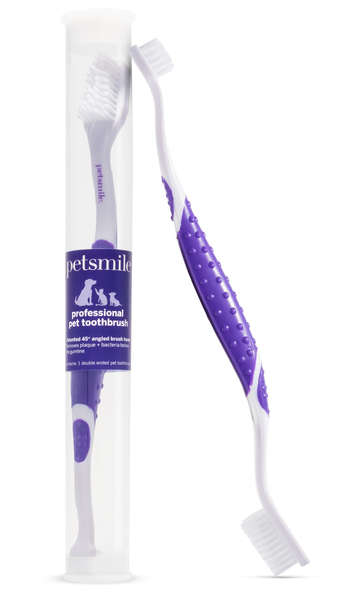Maintaining your pet's oral health is important 365 days a year!
February is more than just the month of love; it's also a time dedicated bringing awareness to our beloved furry friends' oral health! National Pet Dental Health Month serves as a reminder to pet owners everywhere about the importance of good dental hygiene for our four-legged companions. Don't misinterpret the name though: maintaining your pet's oral health is important 365 days a year! Why is a pet photographer covering this topic in the first place? While you don't often see your pet's pearly whites in their professional photos, that does NOT mean you can skimp on their oral care. If you've read my bio, you know that when I'm not photographing your furry companions, I'm taking care of them at East Padden Veterinary Hospital. I have over a decade of experience in that industry, so I know first hand what happens when your pet doesn't have a sufficient dental hygiene routine. Please read below to learn more about pet dental health and how you can support your pet!
Dental disease develops overtime: many pets acclimate to the associated pain and continue to eat normally.
Why Pet Dental Health Matters
Just like humans, pets can suffer from dental issues that, if left unaddressed, can lead to discomfort, pain, and even serious health complications. Dental problems in pets can range from bad breath and plaque buildup to gum disease and tooth decay. Aside from the risk of losing teeth, dental disease has also been linked to an increased risk heart disease. That's why it's crucial to prioritize their dental health as part of their overall well-being.
Your pet needs yearly professional dental cleanings whether you see tartar or not
Regular Oral Exams and Cleanings
One key aspect of maintaining your pet's dental health is scheduling regular oral exams and cleanings with your veterinarian. Just as humans are advised to visit the dentist annually, pets should also undergo a thorough oral examination at least once a year. During these exams, the vet can assess your pet's teeth, gums, and overall oral health, identifying any potential issues early on.
Professional cleanings at the vet are also essential for your pet's dental care regimen. While it might seem unnecessary, even if your pet doesn't exhibit signs of bad breath or severe tartar buildup, they still require professional cleanings. Similar to how we humans go for dental cleanings twice a year, these cleanings help remove plaque and tartar that regular brushing might miss, preventing potential dental problems down the road.
I wish this is something that had been explained to me when I got my first dog 17 years ago. Cordelia didn't get her first dental cleaning until she broke a molar on a nyla bone because her teeth didn't look like they needed a cleaning. In reality, cats and small breed dogs should have their first dental cleaning by 1 year of age, and large breed dogs should by 2 years of age: even if their teeth look fine.
This point is so important for me to hit home that I will say it one more time before moving on. Your pet needs yearly professional dental cleanings whether you see tartar or not. You (likely) don't skip your routine cleanings just because your teeth look clean, let's do our pets the same dental justice!
Use a soft bristle toothbrush and a pet safe enzymatic toothpaste, pet's cannot have flouride!
The Importance of Early Intervention
It's important to note that dental health should be a priority from the moment you bring your pet home. Just like with humans, prevention is key. Many veterinarians recommend that pets have their first professional dental cleaning by the age of three. However, individual needs may vary based on factors such as breed, size, and overall dental health. As I mentioned above, small breed dogs and cats will need their first cleaning much sooner, as early as 1 year of age, and many large breed dogs will need their's by 2 years old.
Starting dental care early can help establish good habits and prevent the development of dental issues later in life. Regular brushing, providing dental chews or toys, and incorporating dental diets can all contribute to your pet's oral health routine. A daily dental hygiene routine is crucial to your pet's health, but it is NOT a subsitute for yearly cleanings. Your pet needs both to maintain optimal dental health, and overall health!
Daily Dental Hygiene Routine:
Creating, and sticking to a daily dental hygiene routine is paramount to your pet's dental health. Brushing their teeth daily is the number one recommendation but I know as well as you do that not all pets will allow you to stick a toothbrush in their mouth. The good news is there are other options out there for pets who absolutely will not tolerate brushing their teeth.
There are three ways dental products work: mechanical/abrasion, chemical, and a combination of the two. You can probably guess, but brushing your pet's teeth does the combo, if you're using a pet safe enzymatic toothpaste. Some dental chews offer the combo, though most dental chews and dental diets work by abrasion, and most food and water additives work via chemical action.
The best place to find dental hygiene products that work is the Veterinary Oral Health Council. "The VOHC does not test products itself. The Mission of the Veterinary Oral Health Council is to review products for the VOHC’s standards for effective plaque and tartar control in animals when used as directed. The Council reviews the submitted data to ensure it meets the clinical requirements to receive the Seal of Acceptance. When a product demonstrates dental efficacy, the VOHC Seal of Acceptance is awarded. The Seal can be for Plaque, Calculus, or both."






0 Comments